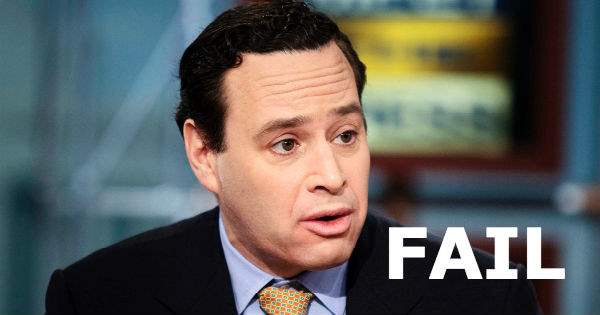Around this time last year, I began a self-imposed experiment. I wanted to see if a diet of center-right conservative thinking could rattle my default center-left leaning.
Perhaps it was the hyper-politicized environment of 2016, perhaps it was reading Daniel Oppenheimer’s wonderful Exit Right, but I realized that I had never given conservatism serious thought, or, for that matter, thought very deeply about my own or any political ideology. Instead, I had engaged in the common and intellectually lazy shortcut of relying on cultural cues—Fox News is silly, ergo conservatism is silly; conservatives are religious fanatics, ergo conservative ideas are baseless; Jon Stewart makes fun of Republicans, ergo … you get the idea.
So, ashamed at myself for this lack of rigor, I decided to binge for a year on the National Review. And while I won’t be naming my cat “Buckley,” I did learn an awful lot and can positively recommend the experience. In part thanks to this experience, I’m ending 2017 feeling more ideologically objective and independent than I’ve ever felt.
I’m also, I’ve noticed, much more dismissive of the #resist movement than my leftist friends and colleagues. This is not to say I support Trump—I adamantly do not. But it is to say that I’ve felt witness to a kind of hysteria infecting both right and left #resistors, in that they seem all-to-ready to immediately believe specious claims (see the recent CDC “banned words” story) and cannot under any circumstance allow themselves to agree with or praise anything that comes out of the Trump administration.
Charles CW Cooke, editor of National Review Online and something of a new hero for me, exhibits this in his recent piece on fellow conservative Jennifer Rubin. Cooke’s humble argument, abstracted from the focus on Rubin for a moment, is simply that if Trump does something in line with your previous policy preferences, it’s suspect if not absurd for you to then take the opposite position simply because you abhor Trump’s character.
This seems entirely reasonable to me, but not to David Frum, who is so convinced of Trump’s collusion-guilt and threat to Democracy that he enters the debate to imply that Cooke is taking his position (again…that position is described above) not out of prudence and a general regard for skepticism, but out of cowardice and economic self-interest. You see, Frum is already sure that Trump is guilty of collusion, so the only possible explanation for Cooke not joining the chorus of #resist hysterics is that it might alienate the Trump loyalists and, I suppose, reduce subscriptions to the National Review Online.
Let’s lay aside the ridiculous accusation of economic self-interest from someone promoting an all-cap-titled book called TRUMPOCRACY for a moment, and look at just what Frum is criticizing: prudence, skepticism, and the withholding of judgement without evidence.
Read this, from Cooke:
I had an interesting conversation last night with a fellow critic of President Trump’s. He was irritated that I had insisted that those watching the Comey situation remain “skeptical but not hysterical.” Now, he said, is “the time to be hysterical.”
I’ve been trying to understand why he was so vexed, and I think I’ve worked it out: He has assumed — and built into his thinking — that there is a huge Russia scandal in the background of all this. And I haven’t. I certainly think it’s possible that this goes deeper, and I remain as mistrustful toward this administration as I ever was. But I’m not going to credit theories about Watergate-level conspiracies without evidence, and my friend is. That’s the line that divides us.
That being so, his approach makes sense. If, like my friend, you are convinced that Trump is guilty and that we are just waiting for the smoking gun, you will work backwards from that point and conclude that Trump is obviously getting in the way of the investigation, and that this is obviously Watergate. If you aren’t sure that there is a big scandal looming, you’re likely to be circumspect and happy to watch it play out as a process.”
Now imagine the filter through which one must be viewing the world to interpret the position Cooke is taking as unreasonable. Frum literally excerpts phrases like “skeptical but not hysterical” and “if you aren’t sure that there is a big scandal looming, you’re likely to be circumspect and happy to watch it play out as a process,” as indications of Cooke’s naiveté at best or craven posturing at worst. (Cooke responds here).
What Cooke is doing is simply saying one should be consistent on considered ideological positions and that we do not yet know the extent to which, if at all, Trump’s campaign acted improperly during the election. Thus, why scream about it as if it were already shown to be true? Why abandon principles? What other situation would that be advised in? Who is the threat to due process and the rule of law here, Cooke, or #resistors who have already made up their minds (for almost epileptic shock-inducing example, see Laurence Tribe)?
I’ll be as happy as a clam if Trump loses the 2020 election—or if true crimes are uncovered that lead to impeachment—but I’m not willing to throw away #reason for the sake of #resist.

